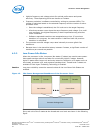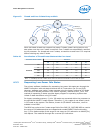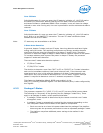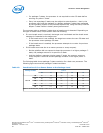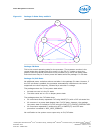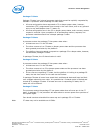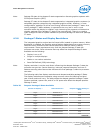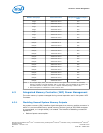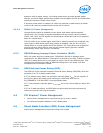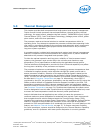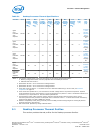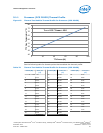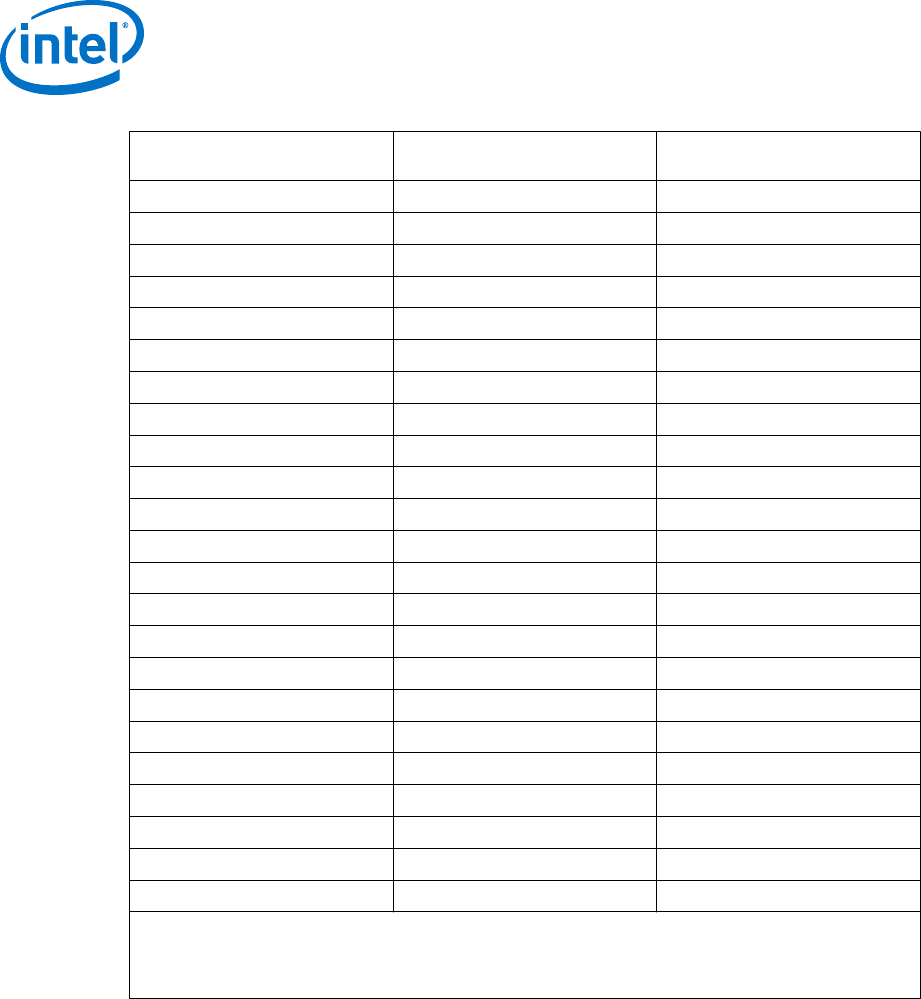
Number of Displays
1
Native Resolution Deepest Available Package C-
State
Single 2880x1620 60 Hz PC3
Single 2880x1800 60 Hz PC3
Single 3200x1800 60 Hz PC3
Single 3200x2000 60 Hz PC3
Single 3840x2160 60 Hz PC3
Single 3840x2160 30 Hz PC3
Single 4096x2160 24 Hz PC3
Multiple 800x600 60 Hz PC6
Multiple 1024x768 60 Hz PC6
Multiple 1280x1024 60 Hz PC6
Multiple 1920x1080 60 Hz PC3
Multiple 1920x1200 60 Hz PC3
Multiple 1920x1440 60 Hz PC3
Multiple 2048x1536 60 Hz PC3
Multiple 2560x1600 60 Hz PC2
Multiple 2560x1920 60 Hz PC2
Multiple 2880x1620 60 Hz PC2
Multiple 2880x1800 60 Hz PC2
Multiple 3200x1800 60 Hz PC2
Multiple 3200x2000 60 Hz PC2
Multiple 3840x2160 60 Hz PC2
Multiple 3840x2160 30 Hz PC2
Multiple 4096x2160 24 Hz PC2
Notes: 1. For multiple display cases, the resolution listed is the highest native resolution of all enabled
displays, and PSR is internally disabled; that is, dual display with one 800x600 60 Hz display and
one 2560x1600 60 Hz display will result in a deepest available package C-state of PC2.
2. Microcode Update rev 00000010 or newer must be used.
Integrated Memory Controller (IMC) Power Management
The main memory is power managed during normal operation and in low-power ACPI
Cx states.
Disabling Unused System Memory Outputs
Any system memory (SM) interface signal that goes to a memory module connector in
which it is not connected to any actual memory devices (such as SO-DIMM connector
is unpopulated, or is single-sided) is tri-stated. The benefits of disabling unused SM
signals are:
• Reduced power consumption.
4.3
4.3.1
Processor—Power Management
Desktop 4th Generation Intel
®
Core
™
Processor Family, Desktop Intel
®
Pentium
®
Processor Family, and Desktop Intel
®
Celeron
®
Processor Family
Datasheet – Volume 1 of 2 December 2013
60 Order No.: 328897-004



